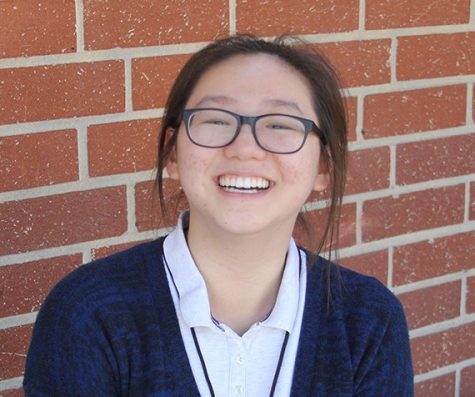On the road to find a cure for pancreatic cancer
As the sun arose on the foggy morning of Oct. 27, groups of volunteers and runners rubbed sleep-crusted eyes as they warmed up for the day on the Veteran Administration Grounds in West LA to show their support in the fight against pancreatic cancer.
Volunteers worked at tables and booths, and cheered runners along the course. Among the volunteers were five Global Mindset Group (GMG) Clark students, including juniors JP Gamboa and Victoria Andal.
“I’m working at the registry table where I give people their bib numbers,” Andal said. “I’m looking forward to meeting new people and supporting the cure for pancreatic cancer.” Other GMG Clark students worked at the exits and entrances and helped people with registration.
The LA Cancer Challenge is an annual event hosted by the Hirshberg Foundation for Pancreatic Cancer Research.
The event called people from all over the city, even from other states, to run in the 5K or the 10K to raise money to help find a cure for pancreatic cancer. Even children could run in their own race to show support. Winners could win prizes for their efforts, and even those who finished a little late were happy to support the cause.
People clad in athletic wear, purple clothes or even Halloween costumes mingled and enjoyed themselves even as they helped in the efforts to find a cure.
Agi Hirschberg, founder of the Hirshberg Foundation for Pancreatic Cancer Research, glowingly said, “This is a time when 4,000 people have a single voice for pancreatic cancer. United, we will make history and be part of the cure.”
Many other organizations were also there to encourage the fighters of pancreatic cancer. Among the sea of booths was the UCLA Health booth, informing people about the magnitude and dangers of pancreatic cancer.
Dr. O. Joe Hines, a pancreatic cancer surgeon at the David Geffen School of Medicine at UCLA, said, “It’s a very difficult diagnosis. There are about 44,000 Americans who will be diagnosed this year, and almost all of them will die of the disease within the year of diagnosis.”
However, people can help, he said. “It’s all about research,” Hines said. “And research in pancreatic cancer is probably about ten or fifteen years behind other cancers. like colon or breast or prostate, so supporting research through donations is really important to catch up. I think we’ll make great progress over the next five to ten years.”

INTERESTS/HOBBIES: Concert-going, book-reading, pun-saying, cover-making, prose-writing
EXTRACURRICULAR ACTIVITIES: GMG Regional Board (VP of...







